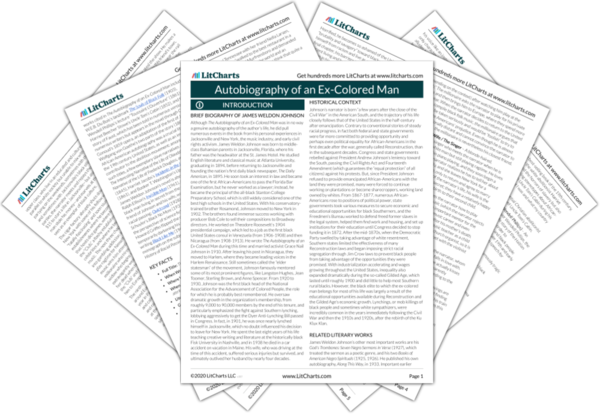The Millionaire Quotes in Autobiography of an Ex-Colored Man
He seated himself at the piano, and, taking the theme of my ragtime, played it through first in straight chords; then varied and developed it through every known musical form. I sat amazed. I had been turning classic music into ragtime, a comparatively easy task; and this man had taken ragtime and made it classic. The thought came across me like a flash—It can be done, why can't I do it? From that moment my mind was made up. I clearly saw the way of carrying out the ambition I had formed when a boy.
“My boy, you are by blood, by appearance, by education, and by tastes a white man. Now, why do you want to throw your life away amidst the poverty and ignorance, in the hopeless struggle, of the black people of the United States? Then look at the terrible handicap you are placing on yourself by going home and working as a Negro composer; you can never be able to get the hearing for your work which it might deserve. I doubt that even a white musician of recognized ability could succeed there by working on the theory that American music should be based on Negro themes. Music is a universal art; anybody's music belongs to everybody; you can't limit it to race or country. Now, if you want to become a composer, why not stay right here in Europe?”
I could see, in spite of the absolute selfishness upon which it was based, that there was reason and common sense in [his argument]. I began to analyze my own motives, and found that they, too, were very largely mixed with selfishness. Was it more a desire to help those I considered my people or more a desire to distinguish myself, which was leading me back to the United States? That is a question I have never definitely answered.












